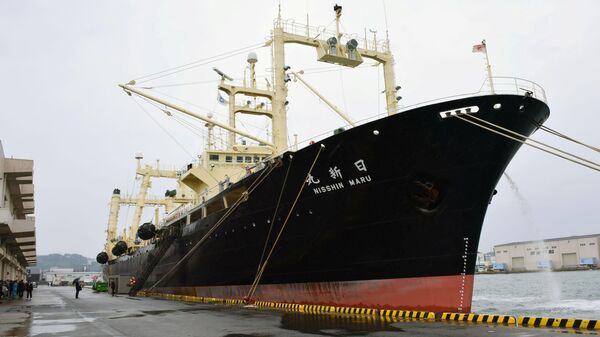The hunts are likely to spark criticism from environmentalists and anti-whaling countries. The decision, however, was celebrated among whaling communities in Japan, which say the practice is a long-standing tradition.
The fisheries ministry told the BBC it would start issuing permits for hunts on 1 July. "But the starting date is subject to decisions of the whalers, weather and other conditions." Whaling is a small industry in Japan, employing around 300 people, and five vessels are expected to set sail in July.
The whaling "will be conducted within Japan's territorial waters and Exclusive Economic Zone,” Hideki Moronuki of the Japanese fishing ministry said earlier. That means that Japan won’t be able to hunt whales in the Antarctic as it did under its earlier research programme.
A number of coastal communities in Japan have indeed hunted whales for centuries, but consumption only became widespread after World War Two when other food was scarce. From the late 1940s to the mid-1960s whale was the single biggest source of meat in Japan, but since then it has become a niche product.
Beyond the exclusive economic zone the country is bound by the UN Convention on the Law of the Sea, mandating that "states shall cooperate with a view to the conservation" of whales and "shall in particular work through the appropriate international organizations for their conservation, management and study,” as stated in Article 65.
Environmental groups, including Greenpeace and Sea Shepherd remain critical of Japan's resumption of whaling. Japan "is out of step with the international community,” Sam Annesley, executive director at Greenpeace Japan, said in a statement, urging Tokyo to abandon its hunting plans.


